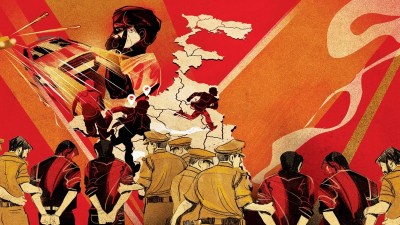The flying flames
Flamingoes are one of the primitive birds which evolved about 50 million years ago. Some scientists believe that they are the link betwee...

Flamingoes are one of the primitive birds which evolved about 50 million years ago. Some scientists believe that they are the link between the group of birds that comprise storks, herons, ibises, spoonbills, cranes and the group to which ducks, swans and geese belong.
Of the total five species of flamingoes, two are found in the Indian subcontinent: the greater flamingo and the lesser flamingo.
The greater flamingoes stand four feet tall and are one of the tallest birds. The lesser flamingoes compensate for their short stature by their rich colour. While the greater flamingoes have light pink legs, the lesser flamingoes have a few streaks of pink on its feathers. The latter also have red legs and a black bill.
It is believed that at sunset the birds look like flames. This is probably the reason why they are called flamingoes.
Both the species are found chiefly in four places in India. The largest population numbers about half a million. They nest and breed at the Great Rann of Kutch in Gujarat. Other flocks of smaller size, inhabit Point Calimer in Tamil Nadu, Chilka lake in Orissa and the Sambhar lake in Rajasthan. Occasionally, smaller flocks are seen in different parts of India.
Soda lakes, salt lagoons and tidal mudflats form the habitats of flamingoes because their food consists chiefly of snails, prawns, crabs, worms and blue-green algae which are abundant in such alkaline waters. Infact, the pink colour of the flamingoes is due to the pink pigment found in the algae eaten by the bird.
It is a delight to watch the flamingoes feeding. They have a long tubular neck at the end of which is their structured bill with lamellae to strain the muddy ooze and retain the food particles.
Flamingoes have been seen in Maharashtra before but not in such large numbers as they are seen now in Sewri, Mumbai, where the flock size is more than two thousand.
Flamingoes are strong enough to move over great distances, especially when they nest. They nest on mud-flats, creating miniature craters in which they lay just one or two eggs.
- 01
- 02
- 03
- 04
- 05































